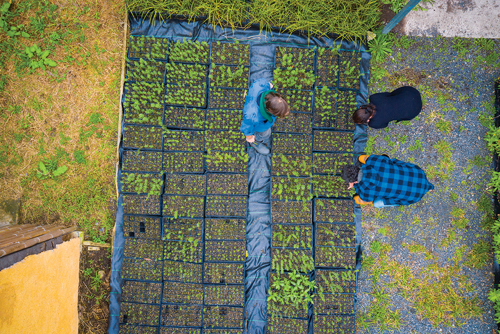Story
Strategy lays out commitment to climate action
We’re doing our part to tackle ‘our generation’s biggest challenge’ with a newly adopted strategy – Ngā Taumata o te Moana – to address the causes and impacts of climate change.
The strategy lays out our commitment to climate action, envisaging a region that’s resilient in a changing climate, and transitions ‘proactively and equitably’ to a thriving net-zero emissions society before 2050.
Amy Macdonald, Chair of our Climate Change Working Party, says the strategy acknowledges the urgent need for change, and the significant role council plays in addressing climate change to protect current and future generations.
She says in Northland, the effects of climate change will increasingly disrupt our water, land, ecosystems, people and economy.
“The climate crisis is our generation’s biggest challenge, and this decade is crucial – we must respond by transforming how our society and economy operate. Our society needs to reach net zero emissions by 2050, and we also need to adapt to the impacts of climate change and restore our valuable carbon-storing ecosystems.”
 Ngā Taumata o te Moana - our strategy for tackling climate change
Ngā Taumata o te Moana - our strategy for tackling climate change
To achieve that, we must all take ownership of this issue and work together in partnership, “to support resilience and a transition that is tika (correct and fair)”. Many of council’s existing activities – such as freshwater management, Civil Defence and flood protection – already address issues created by climate change.
Council recognises the need to work more collaboratively and in partnership with tangata whenua, communities and stakeholders to deliver a wider programme to target climate change initiatives, and in doing so embed climate responses more deliberately across the organisation.
Council is framing its response to the climate crisis in terms of three pou: adaptation, reducing emissions and removing carbon.
Adaptation involves building the resilience of communities and natural systems so they can weather the current impacts, and the significant future effects, of climate change including drought, coastal hazards, sea level rise and flooding
Reducing emissions is a challenging issue for Northland. Overall, roughly 80 per cent of the region’s emissions come mainly from agriculture and manufacturing; the balance comes from transport, services and homes. Northland faces an additional challenge in that its contribution to national emissions is disproportionate due to the presence of high-emitting industry, including the Marsden Pt oil refinery and Portland cement works.
The council says while emissions reductions are a priority, efforts are also needed to start cleaning up existing carbon pollution.
“Council will encourage activities that help remove carbon from the atmosphere by enhancing natural processes that capture and store carbon, such as growing trees and protecting wetlands while achieving other benefits such as improved biodiversity.”
